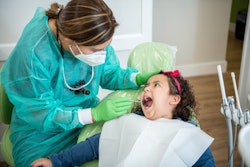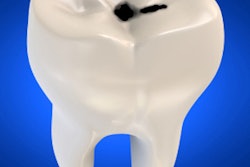Experiencing adverse events in early childhood such as abuse or family instability may increase the risk of developing caries in children ages 7 to 10, according to a study published in the Journal of Dentistry.
Furthermore, only the duration of exposure to the adverse childhood experience (ACE) physical abuse was linked to greater caries increments, the authors wrote.
“This knowledge can help dentists identify vulnerable children or families during routine dental visits,” wrote the authors, led by Noora Jawad of the Queen Mary University of London in the U.K.
This study used data from the Avon Longitudinal Study of Parents and Children, which followed children born in England between April 1991 and December 1992. A total of 7,633 children completed dental questionnaires at ages 7 and 10, reporting on the number of teeth with cavities or fillings. With adult help and a mirror, children counted both front and back teeth to assess their oral health, they wrote.
These self-reports were used to calculate a combined decayed and filled teeth (dft/DFT) score as the main outcome. The study examined how early exposure to ACEs, gathered from parent questionnaires completed from birth to age 6, related to changes in dental health.
At age 7, the average dft/DFT score was 1.06 (95% confidence interval [CI], 0.99 to 1.12), rising to 1.47 (95% CI, 1.40 to 1.54) by age 10. A higher number of ACEs was linked to greater increases in caries, with a rate ratio (RR) of 1.15 (95% CI, 1.02 to 1.30). Most ACE types, except sexual abuse, were individually associated with higher dft/DFT scores, with RRs between 1.15 and 1.54, they wrote.
After adjusting for other ACEs, only household dysfunction, especially parental substance misuse (ages 1 to 5) and mental illness (ages 0 and 3), remained significant. Exposure to multiple ACEs at ages 4 (RR=1.13), 5 (RR=1.13), and 6 (RR=1.14) was linked to more cavities, and longer exposure to physical abuse increased caries risk (RR=1.18).
Nevertheless, the study had limitations. Some children lacked complete data and were excluded from the analysis, so the results may not be generalizable, the authors added.
“There is a need to increase awareness and training among dental teams to provide more sensitive and comprehensive care that considers the psychosocial background of patients,” they wrote.




















